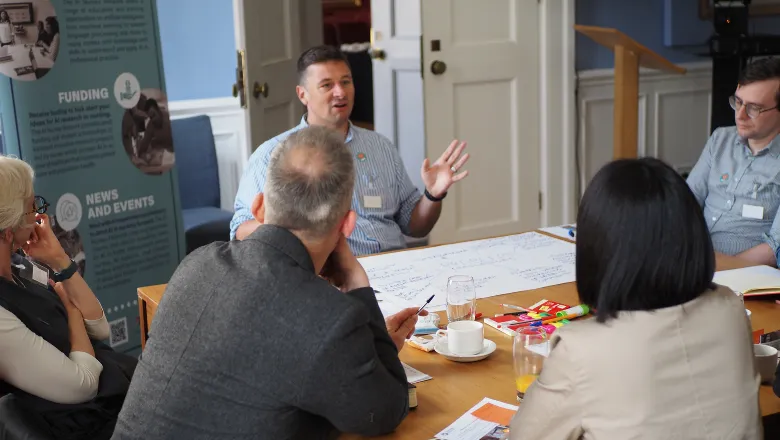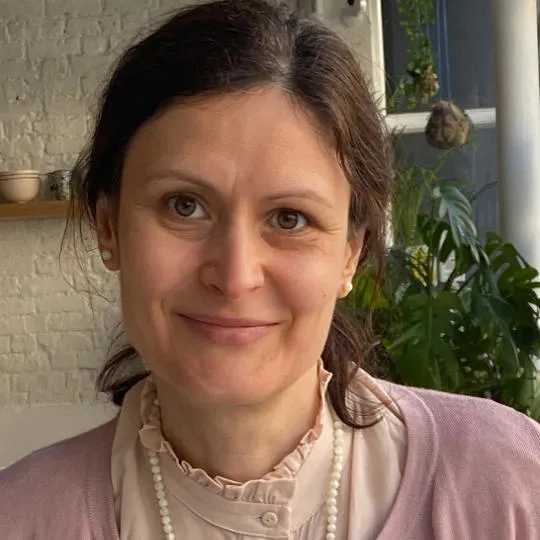You don’t need to be a developer to take part in a hackathon, everyone has great ideas for using AI in the NHS.
Paulo, nurse from Moorfields Eye Hospital
16 September 2025
Reducing waiting times in the Emergency Department: A hackathon with a healthcare mission
Nurses and AI researchers united at King's College London to tackle one of healthcare's most persistent challenges: emergency department waiting times that plague the NHS.

At the inaugural AI Nurses Network Hackathon on Thursday 4 September, creativity and collaboration took centre stage as nurses and AI researchers and developers spent the day brainstorming solutions to waiting times in the emergency department, a long-standing issue for the National Health Service (NHS).
Dr Ed Baker, a Consultant Nurse from King’s College Hospital, provided insights into the challenges with waiting times in emergency care such as high patient volumes with increasingly complex health problems and in-hospital bed demand and availability. This helped the teams think of different ways they could help address these problems using a range of AI techniques and AI tools.

The afternoon was spent building prototypes of AI-based solutions that might work before presenting these to a panel of judges including Dr Crina Grosan a machine learning expert from King’s College London and Professor Jo Armes a cancer nurse specialising in digital health from the University of Surrey. The teams went head-to-head to showcase their ideas, with the most feasible and impactful solutions winning prizes to support their development.

First prize of £1,000 went to a team who proposed leveraging AI based modelling to enhance real-time communication with people waiting in the emergency department, keeping them informed of their assessment and management while reducing the administrative burden on nursing staff. Second prize of £500 went to a team who wanted to enhance a new e-patient triage system with AI to promote accurate and efficient triage and the delivery of timely, personalised care. Other practical solutions included an AI-empowered workflow optimisation model for at home triage and workforce allocation, and an AI-enabled community nursing intervention to personalise preventative care, showing the potential of ambient AI to support community care to reduce avoidable attendance.

All those who took part went home with a goodie bag and a wealth of connections to take their ideas for AI in nursing forward. The hackathon was sponsored by King’s Together Fund.
As this is the first hackathon in the UK dedicated to AI and nursing, we wanted to bring nurses and AI researchers together at King’s to hack a recurring problem in the NHS as waiting times in the emergency department cause many problems for patients, families, and staff. The winning team came up with a great idea to use existing electronic data and infrastructure in the NHS and layer AI on top to create a more person-centred experience, so we’re excited to see them develop their solution in an emergency care setting.
Dr Siobhán O’Connor, Director of the AI Nurses Network and Senior Lecturer in Education & Research, Florence Nightingale Faculty of Nursing, Midwifery and Palliative Care

The event showcased what happens when inquisitive minds rally around AI: practical tools for healthcare, bold ideas, and a community-driven approach to problem-solving. The AI Nurses Network, funded by the Burdett Trust for Nursing, will be running a hackathon each year to enable nurses meet and work with AI researchers and industry to develop bespoke AI tools that improve patient care and population health.


